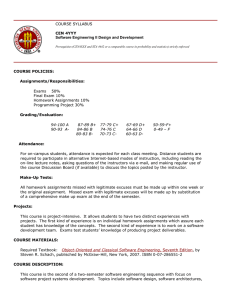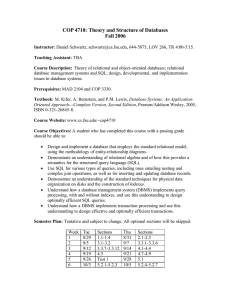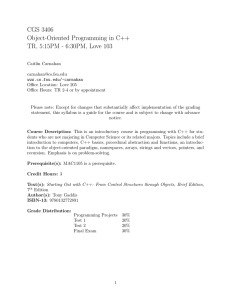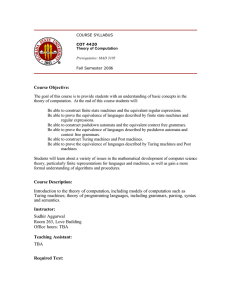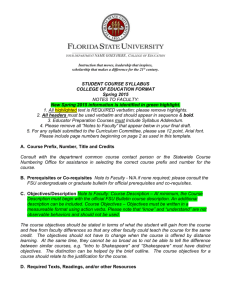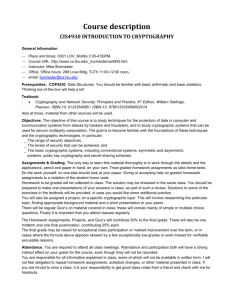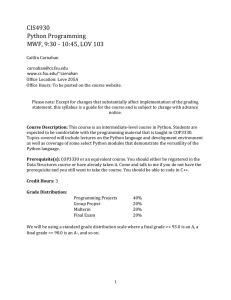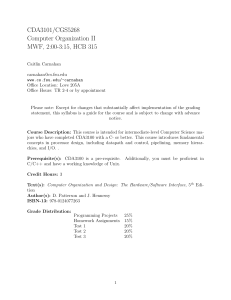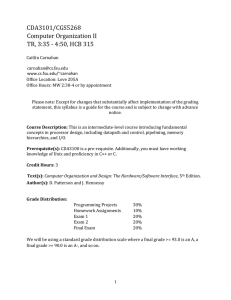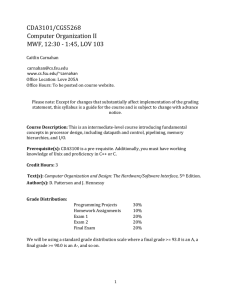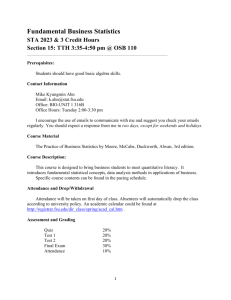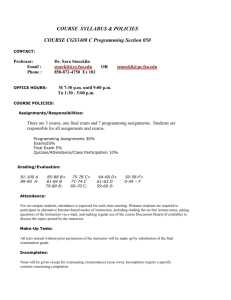Syllabus Guidelines - Florida State University
advertisement
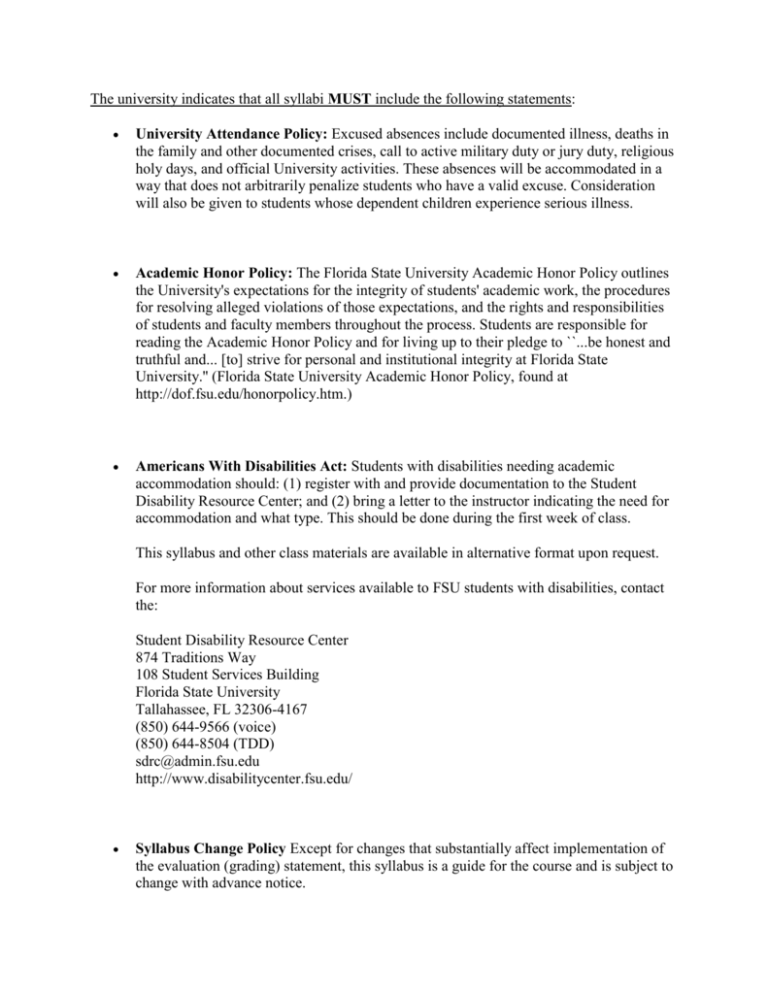
The university indicates that all syllabi MUST include the following statements: University Attendance Policy: Excused absences include documented illness, deaths in the family and other documented crises, call to active military duty or jury duty, religious holy days, and official University activities. These absences will be accommodated in a way that does not arbitrarily penalize students who have a valid excuse. Consideration will also be given to students whose dependent children experience serious illness. Academic Honor Policy: The Florida State University Academic Honor Policy outlines the University's expectations for the integrity of students' academic work, the procedures for resolving alleged violations of those expectations, and the rights and responsibilities of students and faculty members throughout the process. Students are responsible for reading the Academic Honor Policy and for living up to their pledge to ``...be honest and truthful and... [to] strive for personal and institutional integrity at Florida State University.'' (Florida State University Academic Honor Policy, found at http://dof.fsu.edu/honorpolicy.htm.) Americans With Disabilities Act: Students with disabilities needing academic accommodation should: (1) register with and provide documentation to the Student Disability Resource Center; and (2) bring a letter to the instructor indicating the need for accommodation and what type. This should be done during the first week of class. This syllabus and other class materials are available in alternative format upon request. For more information about services available to FSU students with disabilities, contact the: Student Disability Resource Center 874 Traditions Way 108 Student Services Building Florida State University Tallahassee, FL 32306-4167 (850) 644-9566 (voice) (850) 644-8504 (TDD) sdrc@admin.fsu.edu http://www.disabilitycenter.fsu.edu/ Syllabus Change Policy Except for changes that substantially affect implementation of the evaluation (grading) statement, this syllabus is a guide for the course and is subject to change with advance notice. In addition, is highly recommended that all syllabi include a specific grading scale, with language regarding point rounding. An example of such a scale follows: Grading Scale: The grading scale for each element of the course and for the course overall is as follows: B+ 89 – 87 C+ 79 – 77 D+ 69 – 67 A 100 – 93 B 86 – 83 C 76 – 73 D 66 – 63 A- 92 – 90 B- 82 – 80 C- 72 – 70 D- 62 – 60 F 59 – 0 *** Final grade percentages ending in a decimal of “.5” or greater will be rounded up to the next whole number. *** Inclusion of these items in the syllabus reduces the chances for grade appeals, and ensures that the Department and its instructors are in compliance with university policies and regulations in the case a grade appeal or academic honor code violation hearing is required.
